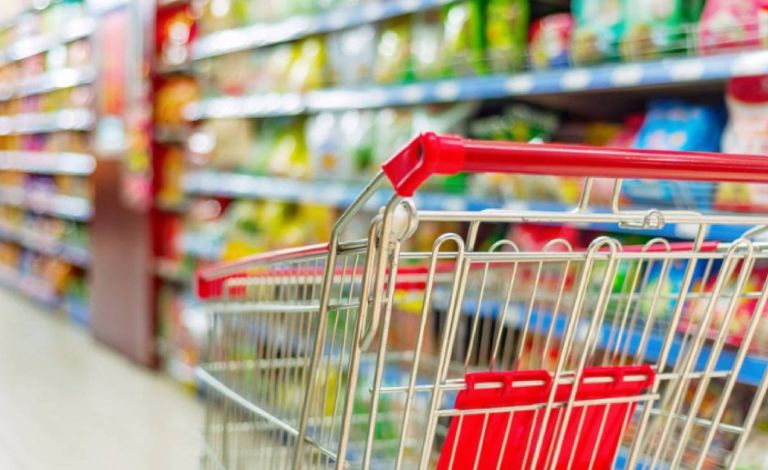The volume of Fast Moving Consumer Goods (FMCGs) in supermarkets will be declining, but not dramatically, this year, with the amount of losses depending on the squeeze caused by inflationary pressures.
Already, according to Nielsen IQ’s international research Shopper Trends 2022 of the company presented yesterday, in the first quarter of 2022, until March 27, the sales trend of FMCGs was negative at 1.4%.
Of course, it is interesting that the lower sales in the first 12 weeks of 2022 compared to 2021, are higher by more than 10% compared to the same period in 2019. Even compared to 2020 – when the outbreak of covid 19 led to markets panic – turnovers in the first quarter of this year are up 0.5%.
Based on the two scenarios examined by Nielsen IQ for the whole of 2022, the decline can range from 0.3% to 2.6% in high-speed product codes.
In the first scenario (drop to 0.3%), inflation in the FMCGs basket is estimated at just 1.5-1.6%. By product category in this scenario, the only category that will show a marginal increase of 0.3% is food, while care and household products will show the largest negative trend of 1.8% and 3.1% respectively.
In the second scenario (fall by 2.6%), inflation is projected at 3% and all categories are estimated to show a negative sign. The biggest pressures will be on household items (-5.3%), followed by sanitary ware (-4%) and finally food (-2%).
Bargain hunters
The focus on the basics without unnecessary luxuries, the search for offers and promotion bargains along with the relaxation of consumer fidelity to specific product brands are basic tools of the Greek consumer in order to face the scourge of rising prices.
According to a consumer survey conducted by NielsenIQ in December 2021, 60% vs. 56% in 2020 and 51% in 2019 said they buy only what they need.
At the same time, 43% of consumers, compared to 35% in 2020, state that they choose which supermarket to shop according to the offers they make.



